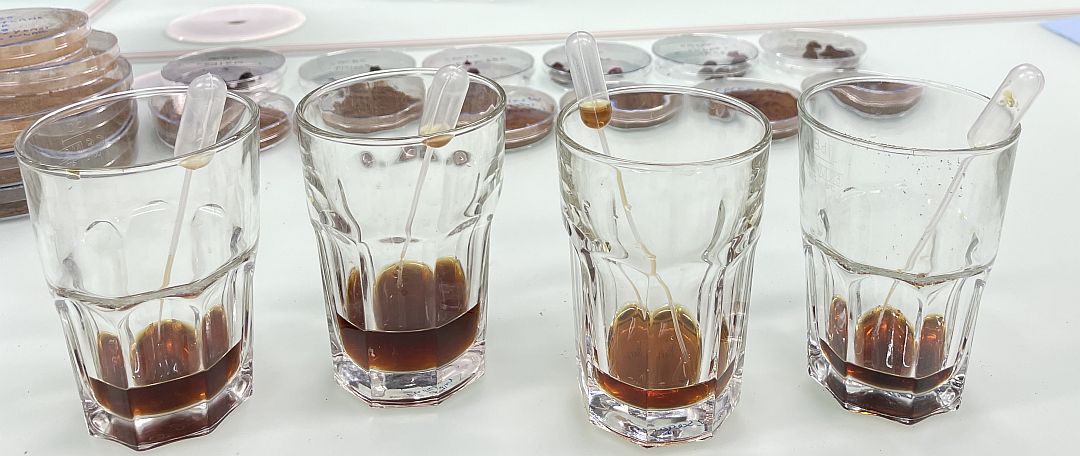Food Brewer—a Zurich-based startup producing cocoa via plant cell culture—has attracted chocolate giant Lindt & Sprüngli, and Sparkalis (the corporate venture arm of bakery ingredients and chocolate giant Puratos), as strategic investors and collaborators.
The above firms—along with existing investors—contributed to a CHF 5 million ($5.6 million) seed extension round, bringing Food Brewer’s total funding to CHF 10 million ($11.1 million), CEO Christian Schaub told AgFunderNews.
“The commitments of Lindt & Sprüngli and Sparkalis are a further validation of our business and of the market need for what we’re building.”
He added: “Lindt & Sprüngli is known for its excellence in chocolate. The profound knowledge of this global chocolate player will help us in accelerating our go-to-market strategy and further develop our delicious cocoa products. Sparkalis is known for investments in startups having disrupting technologies leading to healthier products and having a positive impact on the planet.”
The rationale behind plant cell culture
With demand for cocoa and coffee expected to dramatically exceed supply as climate change impacts key growing regions, a flurry of solutions has emerged, from bean-free alternatives from upcycled date seeds to more robust coffee plants.
The next wave of startups is growing “real” coffee and cocoa biomass from plant cell culture, an approach that has started to attract the attention of strategic investors from Mondelēz International (which has invested in Celleste Bio and included Kokomodo in its CoLab Tech accelerator cohort) to Puratos (which has invested in Food Brewer and California Cultured via its Sparkalis arm).
Rather than using sunlight, water, and soil to nurture fully-grown plants, firms using plant cell culture grow plant cells indoors in bioreactors fed on sugars, vitamins, minerals, and other nutrients.
The approach is already used on a commercial scale to produce a handful of drugs, notably breast cancer drug Taxol. And while producing commodities such as coffee and cocoa is a very different ballgame, the unit economics still make sense, insists Schaub at Food Brewer.
“We have collaborations with global coffee, chocolate, and food companies who have approached us because they need to secure these resources for the future at scale, and we are very confident that this is scalable.”
CFO Mathilde Dupin added: “Investors can see that certain crops are subject to the impacts of climate change and it is just becoming more and more obvious that these impacts on availability and pricing will be long lasting.”
Scaling up plant cell culture
Food Brewer’s initial focus is on being a b2b ingredients supplier, said Dupin in an interview with us last month. “We’re already at pilot scale [800-liter bioreactor producing kilos of product] and our next goal is to get to demo-scale either by retrofitting a brewing facility or partnering with clients with production capabilities that can be adapted.”
She added: “We see the first large-scale plants as, say, 50,000 liters, but down the road it could go bigger. Plant cell culture has already been proven commercially at 75,000-liter scale.”
Food Brewer is currently working with beverage production equipment giant Krones on adapting equipment from the brewing industry rather than the biopharma industry in order to keep costs down, added Schaub.
“You need a system that you can run for long periods of time without a lot of maintenance, that’s easy to clean, and involves a lower capex investment, which is why we started looking into retrofitting non sterile steel systems from other industries.”
One obvious advantage of plant cell culture versus precision fermentation is that firms are harvesting the whole biomass , rather than engaging in costly downstream processing to extract and purify ingredients, noted Schaub. “We don’t have to get rid of the host [microorganism], we’re basically just growing cells, collecting the biomass and drying it.”
And unlike cell culture media for cultivated meat , he says, “We only pay a few cents per liter [for the media, which is primarily composed of sugars plus minerals, vitamins, and plant growth hormones].”
Regulatory, labeling, and go-to-market strategy
Food Brewer is initially targeting the US market and aims to file GRAS (Generally Recognized as Safe) notifications with the FDA this year with a view to market entry in late 2026.
According to Schaub: “We’re not trying to replace agriculture or even compete with it; we’re just closing the gap between demand and agricultural supply.”





